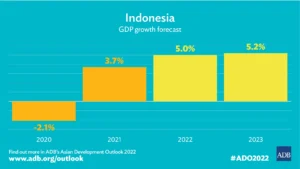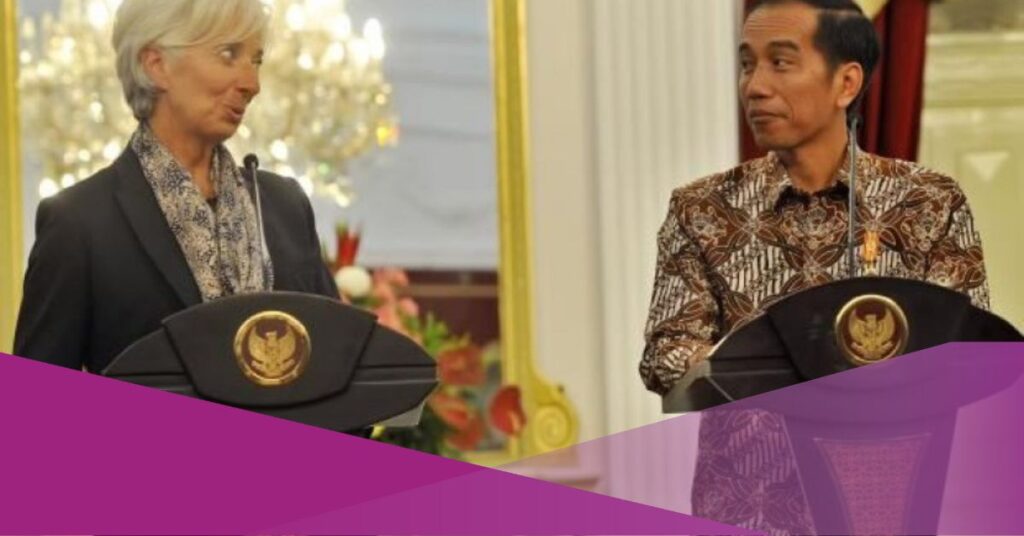Despite anticipating substantially lower global growth rates due to ongoing economic uncertainties and geopolitical tensions, the International Monetary Fund has revised its prediction for Indonesia’s economy. According to the IMF’s most recent prediction that is published in April and 0.2 percentage points higher than the forecast made in January, Indonesia’s GDP growth would reach a 5% level in 2023.
The result also places Indonesia’s economy nearly on pace with China’s growth projection for this year, which the IMF opted to retain from its January report at 5.2%.

Check out more information about Indonesia’s economic growth on IMF official website here
In contrast, the IMF revised its prediction for the world economy to 2.8%, 0.1 percentage points less than it had predicted in January. According to Faisal Rachman, an economist at state-owned lender Bank Mandiri, Indonesia’s internal solid economy is the reason for the fund’s favourable prognosis. Even with sluggish global growth in 2023, Indonesia’s economy will be able to maintain its resilience.
According to Faisal Rachman, an economist at state-owned lender Bank Mandiri, Indonesia’s robust domestic economy is the primary factor for the fund’s optimistic outlook for the nation. Thus, the economy will be able to keep its resilience even in 2023 when global growth is expected to be slow.
In a statement on Wednesday, the 12th of April 2023, Faisal said that Indonesia’s economic and domestic initiatives, notably consumer spending had stabilized and even risen due to increased mobility and a decline in inflation. Faisal predicted that commodity prices would continue declining but more gradually, harming Indonesian exports.
Additional sources of growth will come from investment, as measured by gross fixed capital formation (PMTB), which Faisal anticipates will move to construction investment from its prior concentration on commodity-related investment due to increasing state on spending infrastructure. Despite the bright future, Faisal predicts that Indonesia’s economic GDP growth will be lower than last year, falling 5.04% from the previous 5.31%.
The projection is much lower than the government’s 5.3 per cent objective for this year, which the Finance Ministry has opted to stick to despite many experts anticipating the worst. According to data from Statistics Indonesia, China accounts for 24.93% and 29.89% of Indonesia’s exports and imports, respectively. Comparatively speaking, the numbers for other significant trading partners like the US and Europe which have been adversely affected by the current state of conditions on the global scale, are far lower.
Furthermore, Indonesia’s faster-than-expected fiscal consolidation has played a crucial part in convincing the IMF that Indonesia’s economy would be in stable condition despite the global recession that is happening right now,
Interested about this topic? Check out our other articles:
































